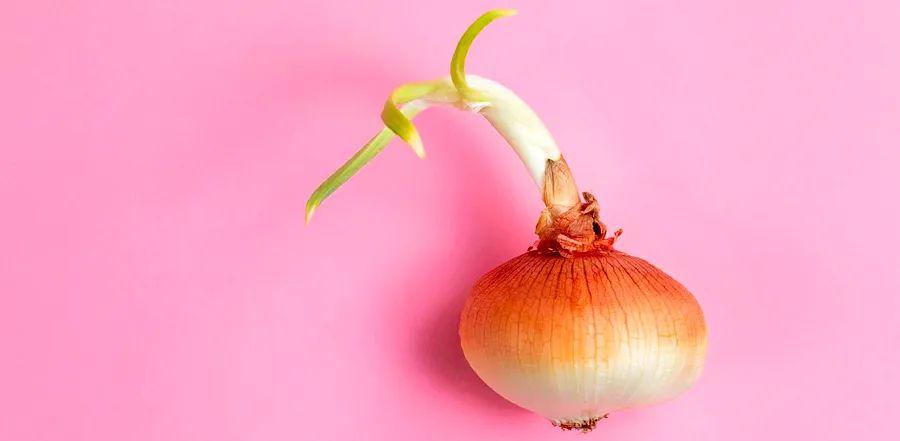Is It Safe to Eat Sprouted Onions?

Having a stash of onions in your pantry is both practical and convenient. With onions being a key ingredient in so many dishes, having them on hand at all times is almost a necessity. But, as with all food storage, you're bound to eventually find a bulb or two sprouting.
When that happens, don't just stare at your pantry wondering whether to toss them or not. Here's everything you need to know before making a decision:
What Causes Onions to Sprout?
Though we often see onions as just a staple for adding savory flavor, their true purpose is to sprout and grow into new plants. It's all about survival in the plant world.
When onions begin to sprout, they redirect their sugars and nutrients into the growing shoot that emerges from the center. This process depletes the onion's moisture and sweetness, which can lead to a slightly more bitter taste, but this is generally not noticeable when cooked.
Are Sprouted Onions Safe to Eat?
Absolutely. Although the green sprout may look like something out of a sci-fi film, it's completely safe to eat. The onion itself may become a little softer and slightly more bitter, but cooking it can easily mask these changes. A clever tip is to chop the sprouts and use them in place of green onions—turning the onion's sprouting efforts into a useful ingredient.
How to Use Sprouted Onions
The key is to use sprouted onions quickly. The longer they’re left to sprout, the mushier they will become. They're best suited for cooked dishes, where their texture won’t be as noticeable, allowing the flavor to shine without issue.
Snip off the green sprout to create a fresh garnish, perfect for dishes like baked potatoes or chili. Alternatively, you can remove the sprout entirely by slicing the onion in half and cutting out any remaining bits of growth.
The Right Way to Store Onions
Onions' worst enemy is moisture, which triggers sprouting. That's why the fridge is not ideal for storing them. Also, avoid direct sunlight, as it can have the same effect. Instead, choose a cool, dark, and dry spot like a pantry or cellar for the best storage conditions.
Keep onions away from potatoes, as onions release ethylene gas, which can cause potatoes to ripen and spoil faster.
While a sprouted onion isn’t cause for concern, allowing it to sprout too much can lead to rot. Signs that an onion has gone bad include a mushy texture and a musty smell—at that point, it’s time to toss it in the compost.
If you're worried about using up your onions in time, freezing them is a simple and effective solution. Just chop the onions, place them in zip-top bags, squeeze out as much air as you can, and spread them in a single layer. Then, pop them in the freezer and they’ll stay good for up to eight months.

1

2

3

4

5
Evaluation :
5/5